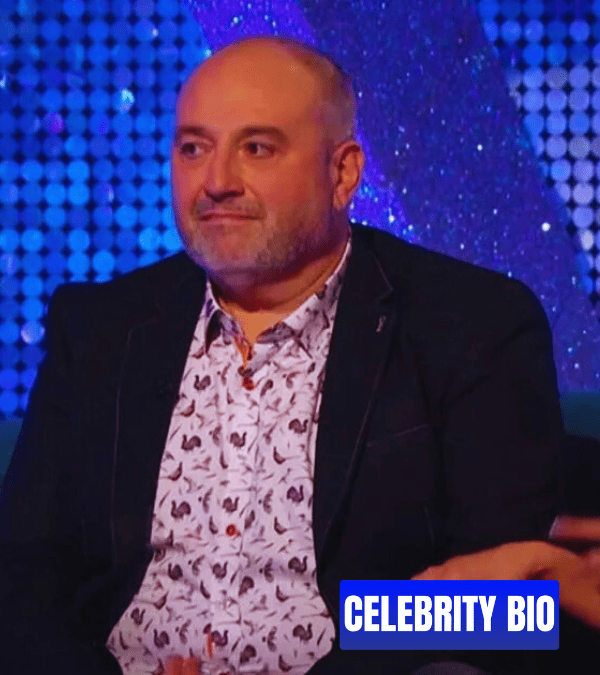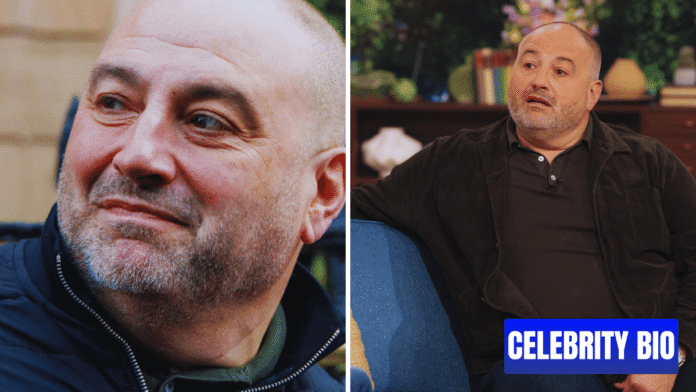Introduction
What did Wynne Evans say that caused such a stir across the media and among fans alike? It wasn’t a dramatic outburst, a scandalous comment, or a scripted PR moment. Instead, it was something much rarer: honesty. Honest, raw, and from the heart.
Best known as the face—and voice—of the exuberant GoCompare adverts, Wynne Evans has long been considered a jolly, harmless fixture of British television. His booming operatic voice, paired with a handlebar moustache and flamboyant character, made him memorable. But beneath that cheerful persona lies a real man who, for the first time in a long time, let his guard down—and the world took notice.
In this article, we take a close look at What Did Wynne Evans Say actually, why it mattered so much, and how it changed the way many people now see him—not just as an entertainer, but as a human being.
Who Is Wynne Evans, Really?
Before we dive into the statement itself, it helps to understand who Wynne Evans is when the cameras aren’t rolling.
Born in Carmarthen, Wales, Wynne Evans is a classically trained tenor with a voice that could fill a concert hall—and often does. For years, he performed in operas and concerts around the world, earning respect for his vocal talent and theatrical flair. But it was the GoCompare adverts that catapulted him into pop culture fame. Suddenly, he wasn’t just a singer; he was Gio Compario, the over-the-top character that everyone loved (or loved to hate).
But Wynne didn’t stop there. In 2023, he charmed viewers all over again by winning Celebrity MasterChef, showing he had both culinary skills and the same down-to-earth humour he’d always exuded.
He’s also a presenter on BBC Radio Wales and frequently appears at public events. People saw him as cheerful, successful, and warm-hearted—a man who always seemed to be on top of the world.
But that’s not the full picture.
The Unexpected Moment: What Triggered the Question “What Did Wynne Evans Say?”
The setting was ordinary: a radio show. The kind of format where laughter flows easily, and the conversation rarely dives too deep. But as the discussion meandered through his recent MasterChef victory, career highlights, and personal reflections, something changed.
Wynne paused. The smile in his voice faded slightly. The host asked a seemingly harmless question: “You must be on top of the world right now, eh?”
And then, without hesitation, he said it.
“I’ve been in some very dark places. There were days I honestly didn’t want to wake up.”
The room fell silent. Listeners at home were stunned. What had just happened? Was Wynne Evans—our bubbly GoCompare man—really saying that he had once considered ending it all?
Yes. And he wasn’t sugar-coating it either.
So, What Did Wynne Evans Say Actually?

Stripped of branding and performance, Wynne’s words were a quiet rebellion against the mask he had worn for so long. He talked about the immense pressure to appear happy, especially when millions expected him to be the life of the party. He confessed to periods of depression, loneliness, and grief, especially after losing loved ones and battling personal demons while still being in the public eye.
He admitted that, at his lowest point, he contemplated suicide. He felt invisible, despite being everywhere. Successful, but not satisfied. Loved, but still incredibly alone.
He said something that many struggle to articulate:
“Just because someone looks happy, doesn’t mean they’re not falling apart inside.”
His tone wasn’t theatrical. It was tired, reflective, and achingly sincere.
This was not a performance. It was a man finally speaking his truth.
Why It Resonated: The Raw, Public Response
The reaction was instant—and deeply emotional.
On social media, messages of support flooded in. Fans shared their own stories. Mental health organisations praised his bravery. Twitter threads were filled with comments like:
- “What Did Wynne Evans Say just said what so many of us feel but are too scared to admit.”
- “This is what real bravery looks like.”
Hashtags like #ThankYouWynne and #ItsOkayToNotBeOkay began trending. It wasn’t just fans; even fellow entertainers expressed their admiration for his courage. In a world obsessed with perfection and image, Wynne had reminded everyone that vulnerability isn’t weakness—it’s strength.
People listened not because it was Wynne Evans, the TV character, but because it was Wynne Evans, the man.
Digging Deeper: Why His Words Really Mattered
Wynne Evans wasn’t just opening up about personal sadness—he was challenging a culture of silence.
- Male mental health is still a topic many shy away from. Here was a successful, seemingly cheerful man admitting that even he had struggled.
- Media pressure to always be “on” creates an illusion of perfection. He shattered it.
- Emotional honesty, especially from public figures, is rare. Wynne didn’t package his pain in a safe, rehearsed message. He simply told the truth.
“In a world where everything is filtered and rehearsed, Wynne’s raw honesty felt like a much-needed reality check.”
He gave others permission to stop pretending.
What Happened Next?
Far from retreating, Wynne leaned into the conversation. In follow-up interviews, he continued discussing his experience—this time with more confidence. He became an unexpected advocate for mental health awareness, especially among men.
He didn’t rebrand himself or launch a foundation. He simply kept talking. And that’s what made it powerful. No agenda. No PR stunt. Just real, ongoing conversation.
Radio stations invited him back. Viewers praised his integrity. Some even credited him with saving lives: “I heard him say what I was too afraid to admit to myself,” one fan wrote anonymously.
Wynne wasn’t trying to be anyone’s hero. But to many, he already was.
Why It Should Matter to You
What did Wynne Evans say that resonated so deeply?
He said what many feel. That success doesn’t guarantee happiness. That smiles can be masks. That talking about pain doesn’t make you weak—it makes you human.
We live in a time where silence kills. Mental health struggles are still met with stigma, particularly for men who are taught to “toughen up” and keep it to themselves.
Wynne Evans showed us a different way: Speak. Share. Survive.
“Perhaps it’s time we all paid attention not just to what’s said, but why it’s said.”
Conclusion
So, what did Wynne Evans say?
He said that he struggled. That he hurt. That he hid behind a smile when the world expected him to sing.
And in saying all that, he gave countless others the strength to say the same.
His voice—once recognised for catchy jingles—is now remembered for something far more powerful: truth.
Have you ever worn a smile to hide how you feel inside? If Wynne’s story resonates with you, maybe it’s time to take off the mask too.
Let us know in the comments What Did Wynne Evans Say’ words meant to you.
FAQs – What Did Wynne Evans Say?
What did Wynne Evans say that caused a reaction?
He revealed his past struggles with mental health, including feeling suicidal, despite his cheerful public image.
What Did Wynne Evans Say make a controversial statement?
Not controversial, but incredibly honest. It shocked many because it was unexpected and deeply personal.
Where did Wynne Evans say it?
He spoke openly during a candid moment on BBC Radio Wales, sparking an emotional response from listeners.
Has What Did Wynne Evans Say spoken publicly about personal issues before?
This was one of the most open statements he has made. It marked a shift from entertainer to someone who connects through honesty.
Why do people admire What Did Wynne Evans Say?
Beyond his talent, people admire his bravery, sincerity, and willingness to speak about things that matter—even when it’s hard.

